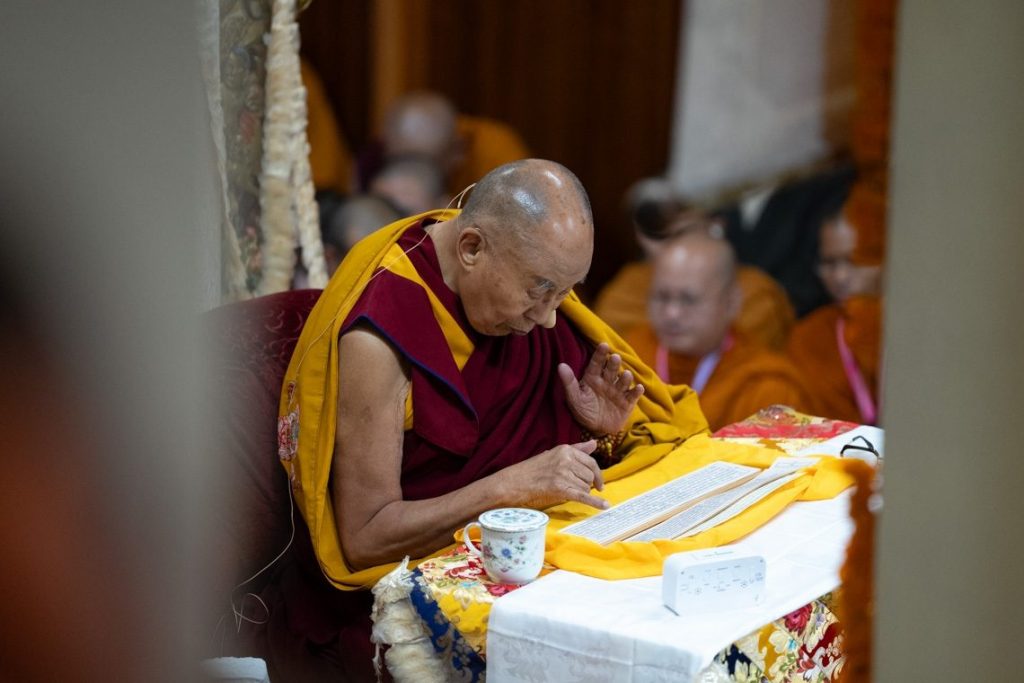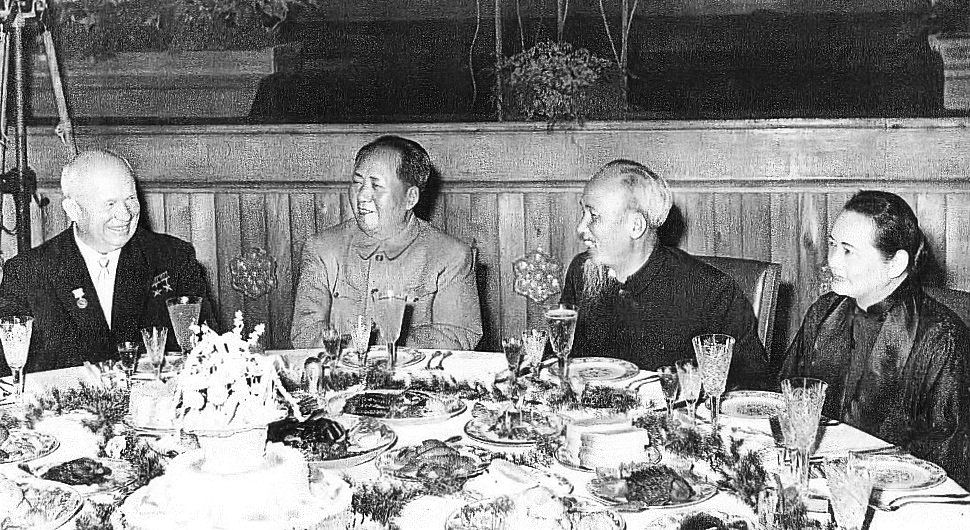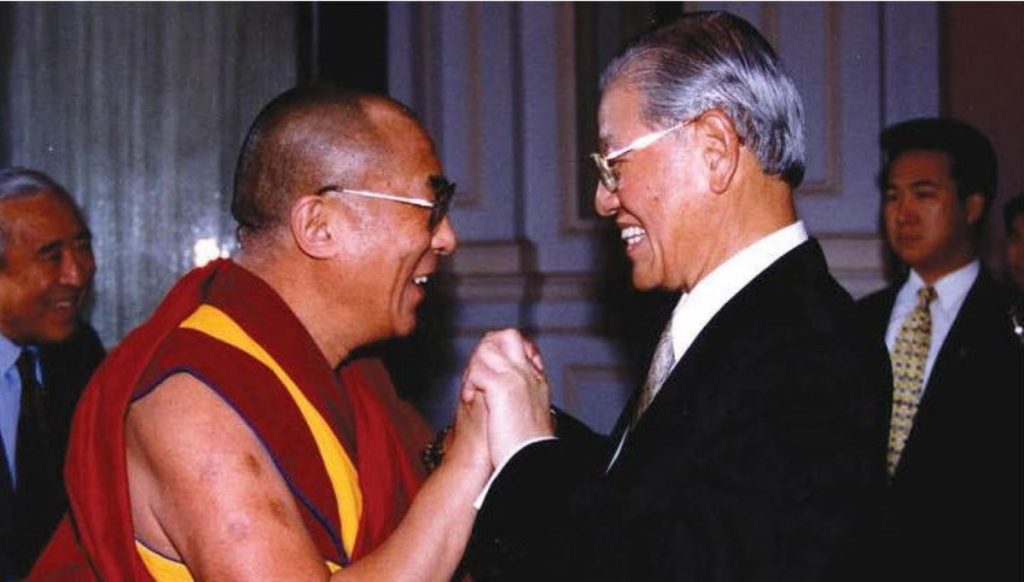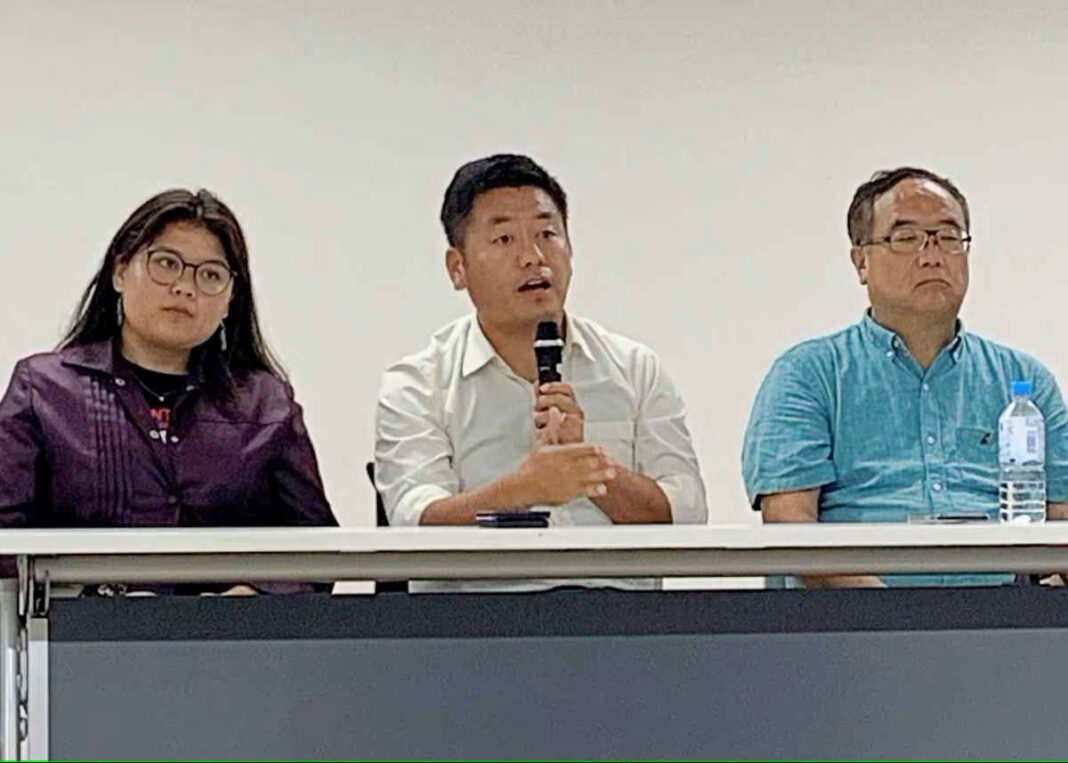On July 26, 2024, the United States State Department released its 2023 Report on International Religious Freedom. The comprehensive review offers a damning assessment of China’s ongoing suppression of religious freedom in Tibet.
It serves as a stark reminder of the Chinese Communist Party’s (CCP’s) relentless efforts to control and manipulate every aspect of “Tibetaness.” This includes Tibetan Buddhism and Tibetan identity. These actions effectively strangle the spiritual and cultural life of the Tibetan people.
At the heart of China’s oppressive policy lies an insidious campaign of “Sinicization.” Essentially, this is a euphemism for the systematic erasure of Tibetan identity and the forced assimilation of Tibetan Buddhism into a CCP-approved version of Chinese culture. This is not merely cultural imperialism. It is a calculated strategy to neutralize what the Chinese government perceives as a threat to its authority and to recreate Tibetan Buddhism in its image.
A State-Driven Agenda
The State Department report highlights the CCP’s 2019-2023 five-year plan to Sinicize Buddhism in China. In particular, the report focuses on Tibetan Buddhism. This plan, far from being a benign cultural initiative, is a blueprint for ideological control. It demands loyalty to the CCP and the state above all else, effectively attempting to replace spiritual devotion with political allegiance.
Furthermore, the state-run Buddhist Association of China (BAC ) is also part of this process. Its involvement only underscores the extent to which the Chinese government is willing to co-opt religious institutions to serve its political agenda.
Perhaps most alarming is the CCP’s brazen interference in the most sacred aspects of the Tibetan Buddhist tradition. The report details how the United Front Work Department (UFWD), an arm of the CCP, has arrogated to itself the power to control the selection of Tibetan religious leaders. Alarmingly, this also includes the recognition of reincarnated lamas. This is not merely administrative overreach. What the CCP is doing is a fundamental violation of religious freedom and an attempt to control Tibetan Buddhism’s spiritual lineage.
Isolating the Dalai Lama
Beijing’s regulations stipulate that reincarnate lamas must be born within China. They also prohibit any foreign organization or individual from interfering in their selection. Both acts are particularly egregious.
These rules aim to prevent the current Dalai Lama, His Holiness the 14th, from having any role in recognizing his successor. Living in exile, he is excluded from this process. It is a calculated move to sever the spiritual connection between Tibetans inside Tibet and their exiled religious leader.

In addition, it seeks to ensure that future religious leaders comply with CCP dictates. Gedhun Choekyi Nima, recognized as the 11th Panchen Lama by His Holiness the Dalai Lama and most Tibetan Buddhists, is still missing. His disappearance stands as a chilling testament to the lengths the Chinese government will go to control Tibetan Buddhism.
Abducted at the age of six in 1995, his whereabouts remain unknown nearly three decades later. This act of state-sponsored kidnapping not only violates fundamental human rights but also represents a direct assault on the religious traditions of Tibetan Buddhism.
The Altar of ‘Xi’
Moreover, the report also sheds light on the Chinese government’s efforts to erase the Tibetan language and culture. Monasteries are being forced to translate texts from Tibetan to Mandarin. Observers have rightly identified this move as an attempt to undermine the Tibetan language.
Beijing is forcing Tibetans to replace images of His Holiness, the Dalai Lama, and other revered lamas with portraits of Mao and Xi in monasteries and homes. This is a particularly cruel form of cultural violence, which strikes at the heart of Tibetan spiritual practice.

Banning images of His Holiness the Dalai Lama, with harsh repercussions for those who dare to own or display them, blatantly violates religious freedom. It also infringes on personal expression. It speaks volumes about the CCP’s fear of His Holiness, the Dalai Lama. He is loved and revered by Tibetans born under Chinese occupation. Therefore, the CCP is determined to eradicate any trace of loyalty to him among the Tibetan people.
Politicizing Tibetan Faith
Elsewhere, the report highlights the intensification of repression around politically sensitive events, religious anniversaries, and cultural events with religious components. By canceling or limiting lay attendance at even approved religious events, the CCP’s capricious control is evident. Tibetan Buddhists must navigate a persistent state of uncertainty in practicing their faith.
The role of the UFWD in managing religious affairs through the State Administration of Religious Affairs (SARA) is telling. It shows how religion in Tibet is treated more as a political matter than a spiritual one. UFWD officials claim the right to deny recognition reincarnations of high lamas of “especially great influence.” Their assertions are a clear indication of the CCP’s fear of charismatic religious leaders who might challenge its authority.
CCP regulations that allow citizens to take part only in officially approved religious practices are a direct assault on religious freedom. By asserting its control over all aspects of religious activity — including the management of religious venues, groups, personnel, and schools — the CCP is effectively trying to remake Tibetan Buddhism. The goal is to transform it into a state-controlled entity devoid of its spiritual essence.
This comprehensive control extends to the minutiae of daily religious life. The CCP maintains a registry of officially recognized reincarnate lamas, effectively bureaucratizing a deeply spiritual process. Local governments in Tibetan areas control the registration of monasteries, nunneries, and other Buddhist religious centers. This allows for constant scrutiny and potential interference with these sacred spaces.
Stranglehold on Religious Freedom
Monasteries are required to obtain official permission for large-scale religious events or gatherings, further restricting the free practice of religion. CCP micromanagement of religious activities not only stifles spontaneous expressions of faith but also allows it to monitor and control the gathering of Tibetan Buddhists. Presumably, the party fears that such assemblies could foster dissent or opposition to Chinese rule.
According to Tencho Gyatso, president of the International Campaign for Tibet, the suppression of religious freedom in Tibet is a critical issue. It includes China’s attempts to control the succession of the Dalai Lama, which are essential to the survival and future of Tibetan civilization. Highlighting Tibet in this year’s State Department religious report was more critical than ever.

As the world watches, China continues to flagrantly violate international norms of religious freedom and human rights through its policies in Tibet. Its systematic attempt to control, manipulate, and ultimately reshape Tibetan Buddhism to serve its political interests is nothing short of cultural genocide. It is a campaign that strikes at the very heart of Tibetan identity and spirituality.
However, China’s policies in Tibet are not just a matter of domestic concern. They represent a challenge to the universal principles of religious freedom and human rights.
The CCP’s actions in Tibet reveal a government deeply insecure about its legitimacy. It resorts to heavy-handed tactics to suppress a peaceful religious tradition that it views as a threat to its power.
Party Ideology Over Religion
Sinicizing Tibetan Buddhism is not merely a policy of cultural assimilation. It is an attempt to fundamentally alter the nature of Tibetan spiritual practice to serve the state’s interests. China insists that Tibetan Buddhism follow the path of “socialism with Chinese characteristics” and “correctly handle the relationship between national law and canon.” In doing so, the CCP is effectively demanding that religious doctrine be subordinated to party ideology.
This approach violates the basic tenets of religious freedom. Moreover, it also demonstrates a profound misunderstanding of the nature of spiritual belief. Religion, particularly one as deeply rooted in tradition and philosophy as Tibetan Buddhism, cannot simply be rewritten to suit political objectives. Doing so would cause it to lose its essential character and meaning.
Tibet remains under the iron grip of CCP control, with every aspect of religious life subjected to state scrutiny and manipulation. As long as this continues, the rich spiritual traditions of Tibetan Buddhism – and indeed, the very survival of Tibetan culture — remain in grave peril.
The intentional community must continue to shine a light on these abuses and hold China accountable for its actions in Tibet. To preserve the unique religious and cultural heritage of the Tibetan people, sustained pressure and advocacy are essential. Without them, the systematic repression they face will continue unchecked.
/japan-forward.com

